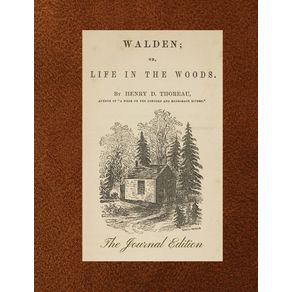| Selo | University Press of Kansas |
|---|---|
| Edição | 0 |
| Idioma | Inglês |
| Autores | Susan R. Schrepfer |
| Acabamento | Capa Dura |
| Quantidade de Páginas | 330 |
| Origem | Literatura Estrangeira |
 Treino e Formação de Cavalos Jovens (Natural Horsemanship)
Treino e Formação de Cavalos Jovens (Natural Horsemanship)
Draft2Digital
R$ 102,09 ou até 2x sem juros Persa (Gato)
Persa (Gato)
Draft2Digital
R$ 91,90 à vista Maine Coon
Maine Coon
Draft2Digital
R$ 91,90 à vista Gato de Bengala (Bengal)
Gato de Bengala (Bengal)
Draft2Digital
R$ 84,83 à vista Pastor-Australiano
Pastor-Australiano
Draft2Digital
R$ 93,01 à vista Equitação Natural
Equitação Natural
Draft2Digital
R$ 92,96 à vista ComPETability
ComPETability
Amy Shojai
R$ 163,60 ou até 3x sem juros Border Collies Go Around the World Coloring Book
Border Collies Go Around the World Coloring Book
Feel Happy Limited
R$ 73,72 à vista I Cant Watch Anymore
I Cant Watch Anymore
Epona Media A/S
R$ 126,39 ou até 2x sem juros Runaway
Runaway
Longleaf Services on behalf of Univ of N. Carolina
R$ 236,59 ou até 3x sem juros Rhodesian Ridgeback Training - Dog Training for your Rhodesian Ridgeback puppy
Rhodesian Ridgeback Training - Dog Training for your Rhodesian Ridgeback puppy
Draft2Digital
R$ 102,68 ou até 2x sem juros Sea Shepherd
Sea Shepherd
W. W. Norton
R$ 140,56 ou até 2x sem juros Sacred Leaves of Candomblé
Sacred Leaves of Candomblé
Univ of Chicago behalf of University of Texas
R$ 236,55 ou até 3x sem juros Positive Herding 101
Positive Herding 101
Positive Herding 101
R$ 193,07 ou até 3x sem juros Beautiful Joe
Beautiful Joe
Hunza Natural Foods LLC
R$ 138,66 ou até 2x sem juros Fungo Libro da Colorare per Adulti
Fungo Libro da Colorare per Adulti
Blurb
R$ 106,08 ou até 2x sem juros Ragdoll
Ragdoll
Draft2Digital
R$ 88,79 à vista Maine Coon
Maine Coon
Draft2Digital
R$ 91,90 à vista Pastor-Australiano
Pastor-Australiano
Draft2Digital
R$ 93,01 à vista Cane Corso
Cane Corso
Draft2Digital
R$ 90,10 à vista Equitação Natural
Equitação Natural
Draft2Digital
R$ 92,96 à vista A Land
A Land
Random House
R$ 141,10 ou até 2x sem juros The Equine Listenology Guide - Essential horsemanship, horse body language & behaviour, groundwork, in-hand exercises &
The Equine Listenology Guide - Essential horsemanship, horse body language & behaviour, groundwork, in-hand exercises &
Grey Pony Films
R$ 168,82 ou até 3x sem juros The Complete Guide to the English Mastiff
The Complete Guide to the English Mastiff
LP Media Inc.
R$ 215,81 ou até 3x sem juros Runaway
Runaway
Longleaf Services on behalf of Univ of N. Carolina
R$ 236,59 ou até 3x sem juros Historic Yellowstone National Park
Historic Yellowstone National Park
Rowman & Littlefield Publishing Group Inc
R$ 141,15 ou até 2x sem juros 100 Flowers Mandalas
100 Flowers Mandalas
Raul.Vlad
R$ 78,18 à vista Amazonia in the Anthropocene
Amazonia in the Anthropocene
Univ of Chicago behalf of University of Texas
R$ 230,20 ou até 3x sem juros Kraken Latin 3
Kraken Latin 3
Canon Press
R$ 189,31 ou até 3x sem juros Kraken Latin 2
Kraken Latin 2
Canon Press
R$ 189,07 ou até 3x sem juros Gato de Pelo Curto Inglês
Gato de Pelo Curto Inglês
Draft2Digital
R$ 93,40 à vista Maine Coon
Maine Coon
Draft2Digital
R$ 91,90 à vista Pastor Alemão (Lobo-da-Alsácia)
Pastor Alemão (Lobo-da-Alsácia)
Draft2Digital
R$ 93,55 à vista Cane Corso
Cane Corso
Draft2Digital
R$ 90,10 à vista Equitação Natural
Equitação Natural
Draft2Digital
R$ 92,96 à vista The Origin of Species
The Origin of Species
www.bnpublishing.com
R$ 126,34 ou até 2x sem juros A Land
A Land
Random House
R$ 141,10 ou até 2x sem juros Walden (The Journal Edition)
Walden (The Journal Edition)
Great Pond Press
R$ 125,61 ou até 2x sem juros I Cant Watch Anymore
I Cant Watch Anymore
Epona Media A/S
R$ 126,39 ou até 2x sem juros Runaway
Runaway
Longleaf Services on behalf of Univ of N. Carolina
R$ 236,59 ou até 3x sem juros Rhodesian Ridgeback Training - Dog Training for your Rhodesian Ridgeback puppy
Rhodesian Ridgeback Training - Dog Training for your Rhodesian Ridgeback puppy
Draft2Digital
R$ 102,68 ou até 2x sem juros Solid Air
Solid Air
Hancock House Publishers
R$ 210,91 ou até 3x sem juros My First Summer in the Sierra (Warbler Classics)
My First Summer in the Sierra (Warbler Classics)
Warbler Press
R$ 84,25 à vista 100 Flowers Mandalas
100 Flowers Mandalas
Raul.Vlad
R$ 78,18 à vista Sea Shepherd
Sea Shepherd
W. W. Norton
R$ 140,56 ou até 2x sem juros